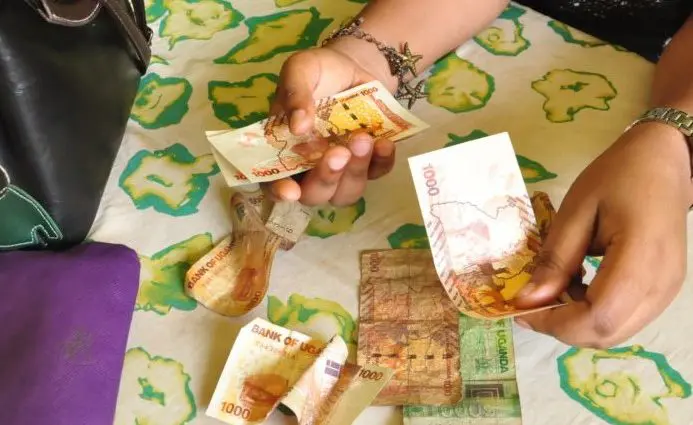It turns out that there is more to Kameeza money than the average Ugandan woman might imagine. Ugandan women have been advised to look at the so-called ‘kameeza’ money as a source of investible capital.
Kameeza is a cash daily subsistence allowance that typical Ugandan husbands leave their women in the morning before they go to work. Some smart women have become rich by saving small bits of kameeza money and investing it quietly.
The advice comes following the release of a report that shows that enterprises run by women in Uganda were more hit by the COVID-19 pandemic and its effects than businesses run by their male counterparts, according to studies.
The businesses and incomes of women were more likely to be hit because they were more vulnerable to spending on home needs than the incomes of men, especially in micro and small enterprise households.
Dan Kasirye, the resident representative of the International Finance Corporation of the World Bank, says women entrepreneurs need special support because there are several special challenges, especially related to culture, that limit them.
“Studies have revealed that access to finance, cultural norms, and other unfavorable regulations significantly limit the success of women-run enterprises. IFC is pleased to collaborate with Stanbic Bank, a market leader in Uganda, to champion this important initiative, which we believe will contribute towards finding solutions to many of these bottlenecks, “said Kasirye.
He said that is why the World Bank’s investment arm decided to invest in women entrepreneurs, partnering with local financial institutions.
Agnes Asiimwe Konde, the Vice President for Program Development at the Alliance for a Green Revolution in Africa, says Ugandans, and women, in particular, need to understand the local market because it is still highly underserved.
She says the local market can ably support local entrepreneurs with locally made products.
But Konde urges women to take financial literacy seriously, learn to save, and invest the little they can get, even before going for loans.
Konde, who is also a board member at Stanbic Holdings, tipped the women to grow themselves from the money that their husbands leave for them if they get a vision for the money, commonly known as “ez’akameeza.”
“As our country’s economy rebuilds from the last two years bedeviled by the pandemic, we want to empower women and women-led enterprises to lead the recovery process, “said Anne Juuko, the Chief Executive of Stanbic Bank.
“We know the challenges the women-led enterprises face every day, in their quest to achieve success; Stanbic here is aimed at removing the barriers that are limiting the potential of Ugandan women-led businesses to thrive,” she added.
